Good work
-
Value unpaid work
-
Fair incomes
-
Legislation change
-
[hidden]
Value unpaid work
Our vision for Aotearoa in 2040: Unpaid work is valued as a social good
Unpaid work is valued as productive and a net benefit to societal wellbeing.
RACP recommendations to make Good Work the Norm
Policies and programs actively support the importance of unpaid work, which is valued as a productive and net benefit to societal wellbeing.
Valuing unpaid labour and the care economy in Aotearoa NZ
What is Good Work?
Roles that meet the values of Good Work will:
- Foster wellbeing, personal growth, fulfilment, autonomy and meaning
- Recognise that all forms of work (including unpaid work) should be valued as parts of our lives
- Move beyond ‘health and safety’ to positively contribute to the worker’s sense of self-determination
Unpaid work is a central yet unrecognised contributor to our economy and society. Examples of unpaid work include:
- household chores
- caring for children, people with illnesses or disabilities
- volunteer work
This work keeps our whānau, our communities and our society going. We need principles of Good Work in Aotearoa NZ to apply to unpaid work — our working lives are much more than time in formal employment.
The counting and distribution of unpaid work shows how it is undervalued by governments and civil society. Unpaid labour is assigned a dollar value, which informs its worth in relation to other economic measures, such as Gross Domestic Product (GDP). Unpaid work is disproportionately done by women and girls. This has direct impacts on both female participation in the labour force and the gender pay gap.
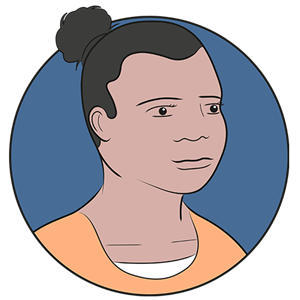 This is Maria. She’s 21 years old, and lives in the outer suburbs of a big city.
This is Maria. She’s 21 years old, and lives in the outer suburbs of a big city.
Maria lost her minimum wage job as a cleaner as a result of the COVID-19 pandemic and has taken up a bigger role around the house. Maria does much of the cooking and cleaning for her whānau, including her uncle who suffers from chronic illness.
Maria is pregnant. She worries that since she lost her job she will become more of a burden, especially once baby arrives. Other whānau members have lost jobs due to the pandemic and everyone is anxious at their job prospects as the pandemic continues.
"I just feel like I’m not contributing enough money. I really appreciate everything my aunt and uncle are doing for me letting me stay here. I help take care of my uncle, which I know that helps out my family a lot."
— Maria on unpaid work
Government and society must celebrate unpaid work – it’s an asset
Government policy in Aotearoa New Zealand contributes to a climate where unpaid work is undervalued. Treasury launched a new framework for measuring economic wellbeing in 2018, applying the Four Capitals — Human, Social, Physical and Environmental. Although this framework recognises many things that contribute to economic growth, it fails to acknowledge the different roles unpaid work plays in our society.
One way to measure unpaid work is through time-use surveys, which gain insights into paid and unpaid work, education and leisure. It has been over a decade since Stats NZ has made a time-use survey. There have been big changes in how people spend and utilise time, including more organisations offering flexible working arrangements. Also, there has been limited (but growing) recognition of the importance of female-dominated care work, both paid and unpaid, including Paid Parental Leave and Pay Equity legislation.
We strongly supports a societal conversation about the value of unpaid work and how it is recognised and supported. This conversation should be inclusive, acknowledging that for many women who do unpaid work, it has strong socioeconomic, ethnicity and cultural dimensions. Intersectionality is critical. The experiences of groups including wāhine Māori, Pasifika women, sole parents and women with disabilities have been neglected and erased from dominant narratives. This has stunted policy design and implementation.
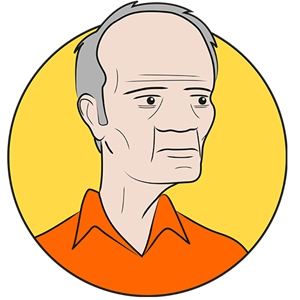 Peter is 72 and lives alone in a rural area.
Peter is 72 and lives alone in a rural area.
Peter’s wife died a few years ago and his nephew recently moved to a major city, meaning he can’t visit as often. Peter struggles with his mobility due to arthritis and he suffers some memory loss caused by a brain injury, which forced him into early retirement.
One of the most important parts of his life is the time he spends at the local MenzShed volunteering. It gives him back some of the routine he lost when he retired and helps him stay in contact with other people. He also really gets something out of contributing and it makes him feel like he is involved in something meaningful.
"The COVID lockdown meant that the MenzShed wasn’t open. Old fullas like me, we like to meet up and work on our projects. Have a chat. April and May were pretty lonely for me."
— Peter on the value of volunteering
Future governments must respond to increasing gender inequity in paid and unpaid work resulting from the pandemic.
COVID-19 has revealed important gendered consequences in national lockdowns. As schools shut, and whānau spend more time at home, demands on unpaid labour increase. Simultaneously, many women are working on the front lines in healthcare, aged care and other essential workforces.
Of the people who lost their jobs in the April 2020 lockdown, a staggering 90% (10,000) were women, who dominate workforces in the hospitality, retail and tourism sectors. Many others had hours cut or pay withheld as their jobs were on a ‘casual, as needed’ basis.
Fair incomes
Our vision for Aotearoa in 2040: Incomes enable whānau to live with dignity
- The Minimum Wage is a living wage.
- Main benefits enable whānau to live a dignified life without being subjected to further systemic financial disadvantage.
RACP recommendations to make Good Work and liveable incomes the norm
- The Living Wage is widely implemented across sectors and Living Wage employers apply the same wage to contractors as well as employees
- Changes to social security legislation to enact the principles under Te Tiriti o Waitangi, and enable dignified lives, including raising main benefit levels and abatement rates, reforming relationship clauses and Working For Families so that it is fit for Aotearoa in the 21st century.
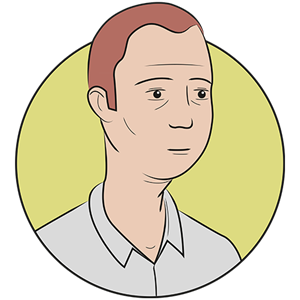 This is Mark. He’s 47 years old, and he lives in a small town in Aotearoa NZ.
This is Mark. He’s 47 years old, and he lives in a small town in Aotearoa NZ.
Mark is a cleaner at a rest home on a casual contract. He is paid $19.20 an hour, just over the minimum wage, and works 32 hours a week. Mark is always willing to take on extra shifts here and there to supplement his income because his low income means constant compromise.
Living on a low income means Mark chooses between turning on the heater or buying meat in his weekly supermarket shop; topping up his phone to call his kids or paying the power bill early to get the prompt payment discount. He lives in fear of the unexpected — a car trouble or an unexpected bill will set him back for weeks.
"It's all about the money aye. The money I don’t have! Everything in my life revolves around the shifts I am given and I can’t ever plan anything more than 2 weeks in advance."
— Mark on his income
Work plays many roles. While it provides the basic resources required to survive in our society, it is also essential to identity,
self-esteem and our ability to form and maintain relationships. Working conditions, including remuneration, job security, job
demands and work environments, have powerful effects on physical and mental health and how we engage with services such
as health. Both unemployment and precarious work are linked to poorer overall health.
Income is important for health and wellbeing
After-tax income has direct impacts on health and wellbeing for whānau. Households on low incomes and government
benefits are more likely experience barriers to access healthcare, to afford nutritious diets, to meet household energy costs
and to afford essential clothing, like decent shoes and a raincoat.
Many people on low wages must work multiple jobs to meet everyday expenses. However, the physicality of their jobs will leave
them exhausted and unable to spend time with whānau or attend recreational and cultural events due to shift work or long
hours. Whānau on low incomes or benefits can’t plan or save for the future. This is subsistence living from pay cheque to pay
cheque. In these circumstances, unexpected bills can’t be paid causing anxiety and stress. Lower-paid workers and people
receiving a benefit must be able to live with dignity, rather than hover on the poverty line.
Unemployment is a political decision. Increasing jobs, wages, and benefit rates must be a priority.
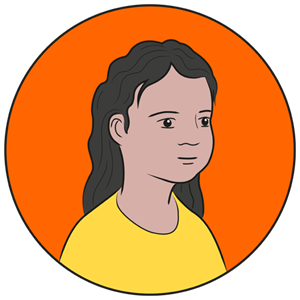 Nina is 4 years old. She lives with her siblings, parents, grandparents, and other relatives who often stay.
Nina is 4 years old. She lives with her siblings, parents, grandparents, and other relatives who often stay.
Nina’s dad Tony works nights as a casual security guard for $20 an hour. He regularly works over 50 hours a week but the whānau had to turn to the food bank after their car needed major repairs, leaving no money for food.
"I need the car to get to my job and the repairs cost basically a weeks’ wages.
No way we could eat without going to the food bank. With rent and everything else, my wages don’t stretch far."
— Nina's dad Tony
The Living Wage supports whānau wellbeing
The Living Wage recognises that employment is much more than a transactional exchange between worker and their employer; it is a relationship across multiple people – the worker, their whānau, their employer, all surrounded by society. The Living Wage is a response to poverty, inequity and wealth disparity. It is calculated as the minimum per hour wage rate to enable a whānau to live with dignity and participate with their community.
The Living Wage promotes a holistic understanding of work, with less focus on the cash value as determined by the market, and more on the value of human and social capital gained through engaged citizens.
Although Living Wage employers will apply the wage to their own workers, they don’t always require outsourced contracts – such as for cleaning, catering and security – to meet the same standard. These workers often work several jobs to cover necessities. Living Wage policies must be extended to all workers regardless of contract.
$22.10
2020 living wage
$18.90
2020 minimum wage
Raising Benefit levels supports whānau wellbeing
Many of the major reports after the 2017 Election found entrenched, systemic failings in the social welfare system. People relying on benefits in Aotearoa should not have to compromise their health or their children’s health to be able to afford safe housing, nutritious diets and meet basic living expenses.
In a just or decent society, it is fundamental to enable people and whānau to live a life with dignity. In today’s New Zealand, an underclass is condemned to perpetual cycles of poverty and hardship. Liveable incomes are fundamental to an equitable society.
COVID-19 and the threat of widespread hardship has laid bare the desperately inadequate incomes beneficiary whānau
are expected to live on: a fact that was already well-known to whānau, health professionals, and community and social
workers.
Legislation change
Our vision for Aotearoa in 2040: The law supports Good Work
- All work supports good health and wellbeing for workers and their whānau.
- All workers are supported by equitable rights and conditions in legislation.
RACP recommendations to make Good Work the norm
- Double mandatory available sick leave in the Employment Act to 10 days and allow for use if dependents are unwell, for example half days or allowing advance use/carrying over allocations into following years.
- Workplaces foster cultures that protect and promote health and wellbeing and support innovation, with government incentives in place for demonstrated good practice.
- The Employment Act is amended to include provision for contractors.
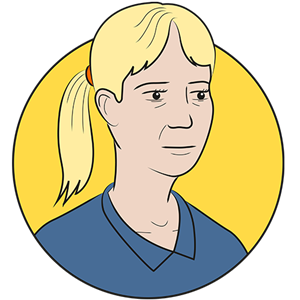 Jo is 35 and is living in a regional city.
Jo is 35 and is living in a regional city.
She’s sleeping on friends’ couches after leaving a violent relationship and works full-time at the local supermarket. Jo has chronic back pain but she is battling through to save a bond so she and her children can have a fresh start.
Jo had already used her 5 days’ sick leave entitlement for the year and is worried it will take her months to save enough money to put a roof over their heads.
"I’m barely scraping by, especially during a crazy year like 2020. My pain has been flaring up and some days I find it so hard to get up and leave the house for work. I really need to get a bond together so the kids and I can have a fresh start. I take all the shifts I am offered and take extra ones, even when my pain is bad."
— Jo on working with chronic pain
Promoting and protecting health and wellbeing at work — for all workers
Presenteeism (working while unwell), not only prolongs recovery time but it risks transmission of infections to others and affects productivity. Presenteeism in the workplace harms mental and physical health for the unwell person and has impacts on colleagues. The current sick leave provisions unfairly disadvantage women, who are often the ones who take time off to look after sick children or the elderly, and those from diverse cultural backgrounds who may not feel comfortable taking formal sick leave due to their cultural norms.
Increase sick leave to make Good Work the norm
To make Good Work the norm, workplaces must encourage workers to use sick days and flexible work policies when they are ill. When workplace and societal culture supports people to stay home when unwell, workers will be better able to recover, and their whānau will benefit too. Some organisations are exploring ways to support employee wellbeing while minimising risks to productivity, such as not putting a limit on sick leave. Reports from these companies show that policies are not abused, and the flexibility and security of uncapped entitlements was welcomed by workers. Domestic leave when dependents, and whānau are unwell is also important, as this has many positive benefits for wellbeing.
The currently legislated 5 days of sick leave per year doesn't allow for people to recover from illness, or cater for people living with chronic illness, where regular hospital admissions or intensive treatments are required to keep them as well as possible. It increases the risk of communicable diseases in workplaces, on public transport and in other public spaces. The provisions do not recognise that individuals all have different health and community needs.
When people run out of sick leave, their options are limited. Because many whānau cannot afford to go without a day’s income, people are forced to go to work unwell. The fear of being unable to work within inflexible sick leave provisions may mean some people choose not to work or feel limited to certain vocational pathways, depriving our workforce of talent.
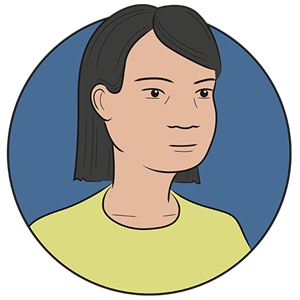 Anna is 25 and living downtown in a large city.
Anna is 25 and living downtown in a large city.
She is recently unemployed, having lost her marketing job. Although she has good insight into her mental health, as she has lived experience of anxiety, the pandemic was a shock.
By July, Anna was unemployed: her employer was not eligible for the extension of the wage subsidy and had undertaken a restructure in early June, scaling back the company by nearly 70%.
"I have applied for so many jobs, but I’m not getting interviews. I have anxiety and it feels like I will never get a job. I am thinking about becoming a delivery driver, just to keep some money coming in, but I know from my friends that do it, it’s insecure. If I get sick, I won’t get any sick pay."
— Anna on gig work
The 'gig economy'
Work and employment are increasingly diverse, with options for employment beyond a traditional job where a person is paid a wage or salary. New types of work include the burgeoning ‘gig economy’. While gig work is relatively autonomous, flexible, and can be highly innovative, gig workers – the unincorporated self-employed – don't have access to the entitlements and structural certainty of traditional employees. The range of work considered contract or gig work is diverse, and incomes can vary, meaning everyone from Uber drivers to people working in the film industry are gig workers.
Surveys in Aotearoa NZ have shown that many gig workers would prefer a permanent job. The most frequent reason for taking temporary work was that no other work was available. Gig work is inherently precarious and unpredictable, with irregular hours and income. These characteristics can contribute to poor health and wellbeing. Contractors have to manage their own ACC levies and handle their own GST. They have no access to the worker protections under the Employment Act, which means that the balance of risk is disproportionately placed against them.
COVID-19 will mean a changed employment and work landscape. Preferences for flexible working arrangements, could lead to increases in the numbers of casual or 'gig' workers in Aotearoa NZ. Ensuring they are covered and protected by legislation must be a priority as the country enters a prolonged recovery phase.